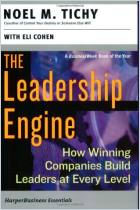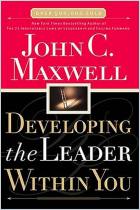Join getAbstract to access the summary!

Join getAbstract to access the summary!
Warren Bennis
On Becoming a Leader
Perseus Books, 1989
What's inside?
Becoming a leader is more than an act of will — it takes curiosity, vision, integrity and work. Lots of work.
Recommendation
In the mid-1980s, the late Warren Bennis wrote this classic model for modern leadership based on personal growth, self-expression, learning and integrity, drawing from interviews with dozens of leaders. Most importantly, he found, leaders do not seek to lead. Instead, they seek to express themselves fully. They embrace risks and mistakes, learning from adversity. They reflect on all of their experiences. With these skills, they inspire others to follow them. They turn organizations into communities which find each member’s highest potential. Bennis may have become slightly outdated, but you'll appreciate his basic, inspiring philosophy of leadership. Read this if you want to lead – and be good at it.
Summary
About the Author
The late Warren Bennis wrote or co-wrote 19 books. A consultant for corporations and governments around the world, he was also a Distinguished Professor of Business Administration at the University of Southern California.





















Comment on this summary